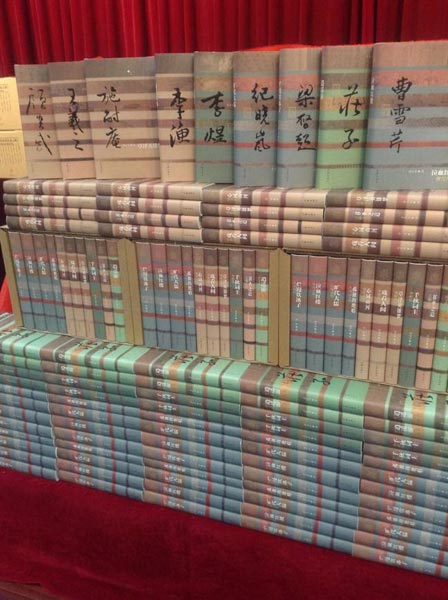 |
|
A new biography series sheds light on the country's masters of culture.Photo Provided to China Daily |
The biographers are combing a vast number of known resources and also tracing their subjects in different parts of China, sometimes making new discoveries.
With his witty speech in a TV series, Ji is vividly portrayed as the emperors' beloved subject and smart fighter against the villainous official He Shen. In reality, he was more a serious scholar who led the editing of Siku Quanshu (Complete Library of the Four Treasuries), the largest book collection in Chinese history.
"Ji was a typical Chinese intellectual with classical values, struggling between conscience and self-protection," He says. "His inner world, rarely revealed in other works about him, makes him real and attractive," he adds.
To veteran scholar Zhou Ruchang and poet Han Zuo-rong, the project became the last chance to summarize their lifelong learning.
Zhou, the country's leading scholar in the study of the classic novel A Dream of Red Mansions, completed five books on the novel's author Cao Xueqin. Zhou died in May 2012 before completing his last book on Cao for the current series, but his daughter carried on the work. The result is the most authoritative biography on the master in 70 years; it is among the first 10 books recently launched by Writers Publishing House.
Like Zhou, poet Han died before seeing his contribution to the series in print. When he died in November, Han had just finished the draft of his book on Li Bai, Chinese "immortal poet" in the Tang Dynasty (AD 618-907).
The editorial committee sees the books as capturing the essence of traditional culture - the significant assets the Chinese should inherit. They also hope the books could elaborate the basic cultural spirits that shape the Chinese people and their society, and avoid being what one member called "old wine in new bottles".
"How we write about our history shows our stance and attitude as contemporaries," says writer He Xiangjiu.
